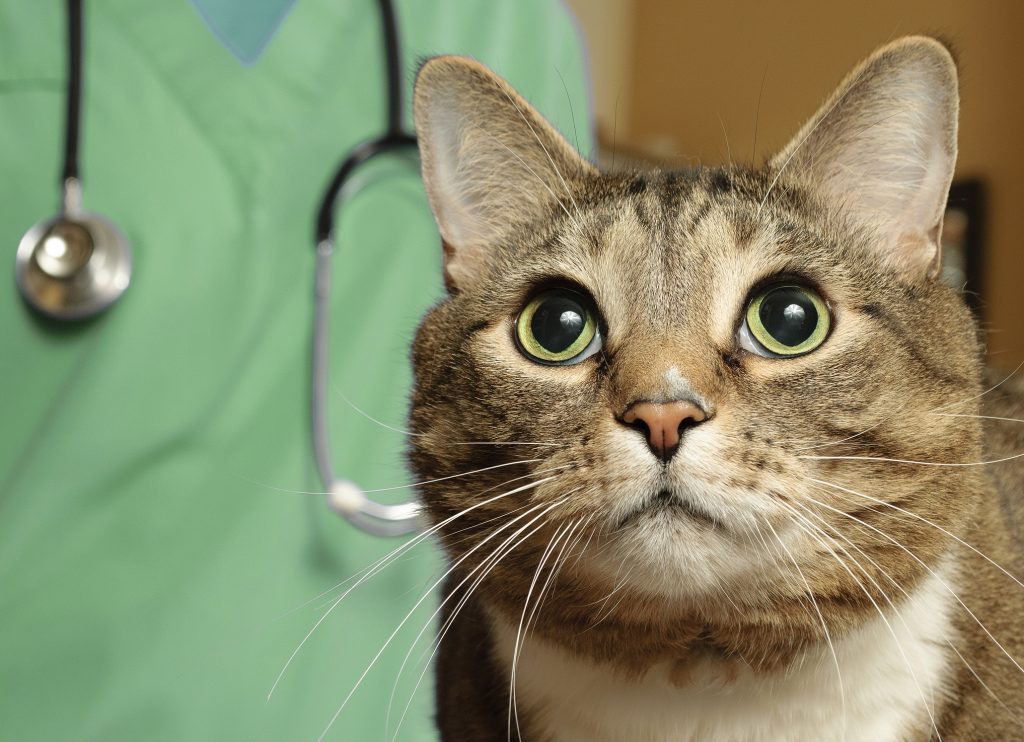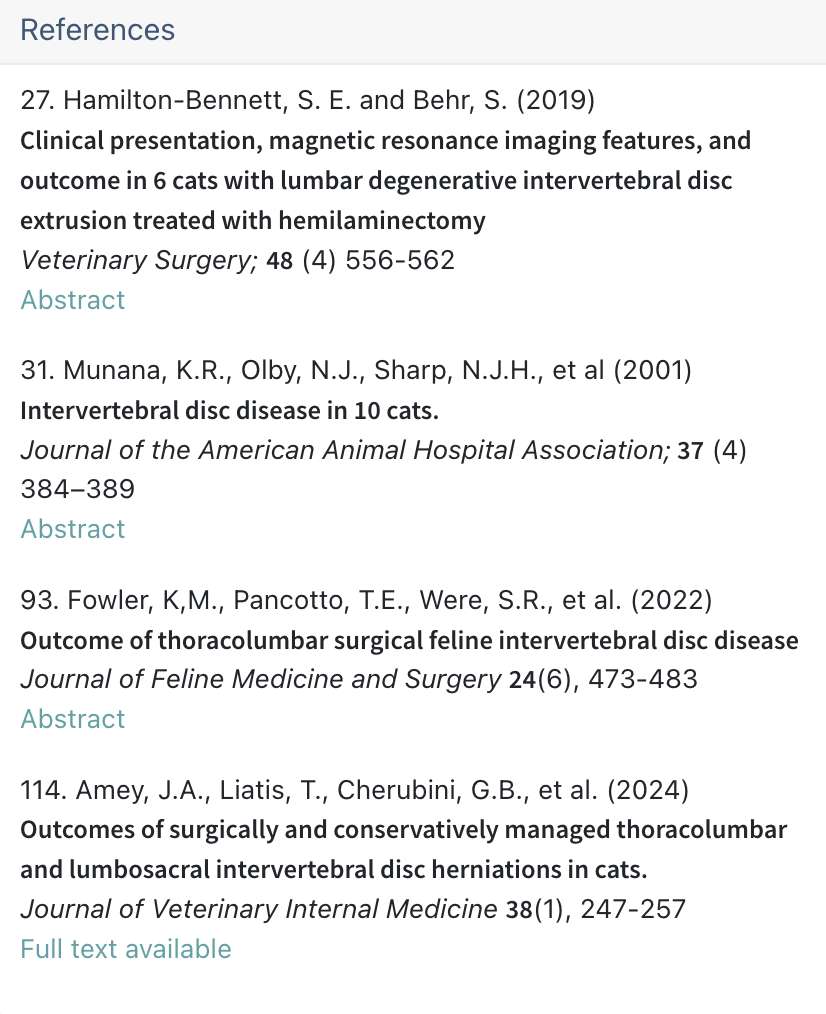INTERVERTEBRAL DISC DISEASE IN CATS
Is conservative management a reasonably option in cats with thoracolumbar disc herniation?

Dilemma:
You diagnose a young female cat “Mimi” with a thoracolumbar disc herniation. The owner is determined to do everything possible for her pet but is worried about the costs of major surgery and the fact that Mimi hates visiting the vet. She would like to know if surgery is absolutely necessary.
Ask VETbytes?
Use REAL-WORLD DATA to equip clients with essential information for making cost-benefit evaluations of treatments

Client communication
Discussing the pros and cons of surgical intervention with a client
Vet: Mimi has been diagnosed with a thoracolumbar disc herniation, which can be quite serious. While major surgery is one of the treatment options, I know you’re concerned about the cost and the impact on her. Let’s explore both surgical and non-surgical treatments and weigh the pros and cons.
Surgical Treatment:
- Benefits: Surgery has been reported to have a good to excellent prognosis for cats with thoracolumbar disc extrusions. This means many cats recover well and regain good motor function in their pelvic limbs. However, urinary continence might take longer to improve.
- Considerations: Cats with traumatic causes of intervertebral disc herniation (IVDH) might have better outcomes than those with non-traumatic causes, although this isn’t statistically proven.
- Short-term Effects: It’s common for cats to have neurological deficits for about six weeks after surgery, but these often improve over time.
Non-Surgical (Conservative) Treatment:
- Benefits: This involves managing Mimi’s condition with medications and restricted activity. In some studies, cats treated conservatively showed no significant difference in outcomes at six weeks compared to those treated surgically. This could mean similar long-term results without the need for invasive surgery.
- Considerations: Conservative treatment might be less costly and less stressful for Mimi, especially considering her discomfort with vet visits.
- Short-term Effects: Neurological deficits can also be present with this approach, similar to surgical treatment.
Research Insights:
- A large retrospective study of cats with thoracolumbar and lumbosacral intervertebral disc herniations found no significant differences in outcomes between cases managed surgically or medically. This suggests that both treatment options can be viable.
- Short-term neurological deficits are common in both approaches, but cats treated surgically tend to start with higher neurological deficits.
Shared Decision Making:
- Considering this information, it’s important to think about what will be best for Mimi’s quality of life and your situation. Surgery can offer excellent outcomes but is costly and involves a significant recovery period. Conservative treatment might be less stressful and less expensive but still requires diligent care and monitoring at home.
What is the evidence?
